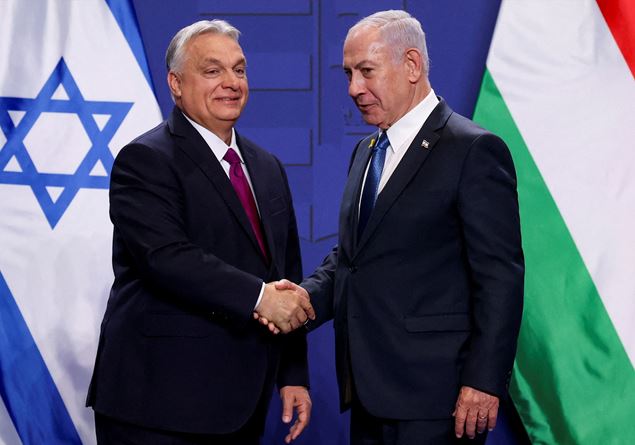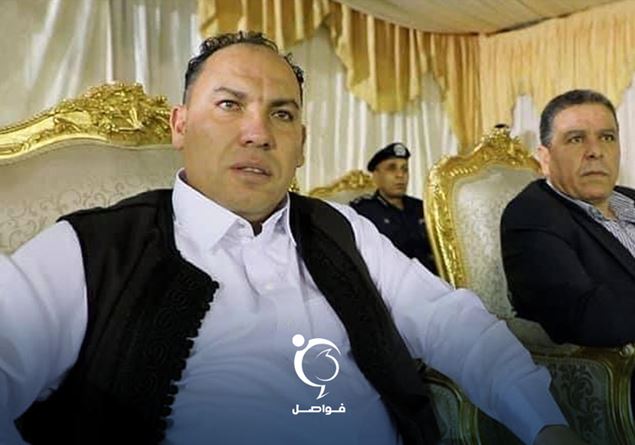The Minister of Justice Carlo Nordio.
(in the photo cover, General Almasri)
And so General Almasri returned to Libya stronger than before. And it seems that after the triumphant moment of his arrival in Tripoli he went to celebrate in the prisons he controlled himself. In the excavation, special correspondent for Happenauthor of in -depth and courageous investigations on the trafficking of migrants in Libya, the first to give the news of Almasri’s arrest, explains what there is to know about a figure towards whom there is a precise capture mandate from the Court International criminal for crimes against humanity, committed from February 2015 to today. “Behind the arrest and release of Almasri there is the repression of Italy of the migratory phenomenon, but not only”, explains Scavo. Here is what is hidden behind the repatriation of the Libyan judicial police chief who makes use of the forces of the Rada arrested in Italy by Digos and immediately released and then returned home with an Italian state flight. A fundamental pawn for the control of the traffic of human beings which today contributes to guaranteeing a minimum of stability and safety to Libya.
Behind the arrest and release of Almasri is the role of Italy in the repression of the migratory phenomenon?
“Behind the arrest and release of Almasri there is the repression policy of Italy towards the migratory phenomenon. But it is not the only reason, because there are many interests between Italy and Libya, such as oil issues. We also find ourselves in an unpublished political scenario: the fall of Assad in Syria has deprived Russia of freedom of movement with its bases on the Mediterranean along the Syrian coast, thus intensifying the presence in Cyrenaica, in Libya controlled by General Haftar, and therefore The current Libyan government is considered as the only interlocutor before a new indecipherable and unmanageable crisis in Libya. General Almasri with his strength, in particular the judicial police and special forces Rada, Today it guarantees a minimum of security and stability to the current Libyan president and the institutions of Tripoli ».

Almasri on his arrival in Tripoli aboard a plane of the Italian secret services.
Who is General Najem Osema Habish Almasri?
“He is a 47 -year -old Libyan officer who grew up in the shade of some important Liberti lords who managed to extend his power gradually, managing to obtain control first of all of two prisons: that of Mitigo, in the airport area Tripoli, and that of Ain Zara. The latter is mainly used to cram migrants, refugees who are tortured, brutalized, sold, placed in the traffic circuit of human beings, raped and killed. This is what the cards of the International Criminal Court say ».
Who is in the other prison?
«In the prison of Mitiga, on the other hand, detainees considered affiliated to ISIS or al-Qaeda are found above all and a rather high number of Libyans because they are deemed dissidents as journalists, activists, women engaged in the defense of rights and held there in conditions of unspeakable horror such as described by the United Nations. Almasri managed to extend his power by taking advantage of some voids, such as the killing of the commander Abdurahman al-Milad, known as Bija and the removal from Libya of the principal itself of his murder, very friend of bija in the past. It was Almasri who arrested him, but a few days later he was put in a private area and sent to Türkiye. The void they both left is occupied by Almasri who, among other things, according to the testimonies of some migrants has been seen in the prison camps for migrants and refugees in Zwara and Al Zwaia, not very close to Tripoli along the road that connects Tripoli to Tunisia ».
Is there any analogy with the case of the journalist Cecilia Sala? Almasri could be released to prevent the arrest in Libya of Italians, to be used as an exchange commodity, as has been done between the room and the Iranian engineer Abadini?
“The case of Almasri is not comparable to the case of Cecilia Sala because Almasri was the recipient of an international capture mandate, while the Iranian engineer arrested in Italy was not the recipient of a measure of this type. Furthermore, it must be said that in the case of Cecilia Sala we must consider that there is a political aspect and also I would say of social responsibility because Italy has important economic relations with Iran. But Italy is not a country that trains the Iranian police forces, which finances Iranian prisoners and which legitimizes the Iranian authorities; Contrary to what is happening with Libya to which Italy provides motorboats, the trainers of the Libyan militias who then adhere and give up to the so -called Coast Guard and other forces of Tripoli. Italy is engaged in Libya with its own formation mission also of health paintings, financed its migratory policies together with other European countries. Consequently, the violence suffered by migrants benefit from the political and military political support of our country. Evidently the responsibility is greater and cannot be compared to the case of Iran ».
The interior minister Matteo planted.
Is it really possible as the government claims that it is a procedural error?
«That it is a procedural error from a technical point of view is possible, but from a point of view of the consequences it was certainly not unsolvable. This was explained by the International Criminal Court. Among other things, in the latest documents consulted by the Turin Police Headquarters it is clear that the whole operation was carried out correctly by the police and all information was known to the Ministry of Justice, immediately informed from the moment of arrest. Via Arenula before the arrest had also been informed by the International Criminal Court.
What about Minister Guardasigilli Nordio?
“The same minister with a press release on January 21 responds to be evaluating, given the full -bodied assignment, the decision to be made, so there is no doubt that the ministry had not been informed. Irritation would consist of the failure to communicate direct communication between the person of the Minister and the International Criminal Court. It should also be added that when the Court of Appeal of Rome asked the Minister to express himself, as reported in the court documents, he did not get any response. This shows that there is a precise political will, because the minister could have responded with a yes or no in both cases motivating it. Instead he preferred silence and this served the court in order not to validate the arrest and put Almasri free. Who, according to the minister planted who intervened in front of Parliament, was repatriated with the utmost urgency due to his very serious danger. I wonder why considering it so dangerous it was not delivered to the International Criminal Court that could have stopped Almasri’s actions. Today Almasri evidently thanks to these Défaillance Italian has returned to Libya stronger than before.








